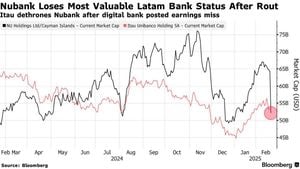George Lucas, the creative force behind the iconic franchises Star Wars and Indiana Jones, has played an undeniable role in shaping modern filmmaking and pop culture. Despite his legendary status, many are surprised to learn the extent of his directorial work outside the Star Wars universe. Lucas's filmography primarily includes just two non-Star Wars films: THX 1138 and American Graffiti. Both of these films played pivotal roles in establishing his reputation prior to the monumental success of Star Wars, released in 1977, which would forever tie him to the galaxy far, far away.
Lucas began his cinematic career by studying at the University of Southern California's School of Cinematic Arts, where he caught the attention of renowned filmmaker Francis Ford Coppola. After graduating in 1967, he co-founded American Zoetrope with Coppola, which became instrumental for both filmmakers. Lucas's first feature film, THX 1138, released in 1971, delved deep within the sci-fi genre but didn’t capture box office success at the time. Over the years, it has developed a cult following.
The real breakthrough came with the 1973 film American Graffiti, depicted through the lens of Lucas's own childhood experiences. The film tapped successfully on nostalgia, earning him five Academy Award nominations and cementing his status as one of Hollywood's brightest new talents. According to reports, American Graffiti is regarded as one of the most profitable films ever produced, which quickly established him as a major director, setting the stage for his later triumphs.
After the success of Star Wars, Lucas shifted his focus almost exclusively to this sci-fi phenomenon. He directed the first trilogy of films—A New Hope, The Empire Strikes Back, and Return of the Jedi—with significant contributions to the prequel trilogy as well. Since Star Wars, he has not returned to directing other content since, preferring to produce films and work behind the scenes at his visual effects company, Industrial Light and Magic.
It was during this tenure of producing major blockbuster films and groundbreaking special effects technology, including the establishment of sound design and visual effects standards, when Lucas made the pivotal decision to sell Lucasfilm to The Walt Disney Company for approximately $4.05 billion back in 2012. Lucas reflected on his choice to retire from directing films, acknowledging, "At 69, the question was: am I going to keep doing this for the rest of my life?" His choice to step away was also prompted by personal changes, including the desire to focus on his daughter.
Despite his absence from directing new projects, Lucas's visionary ideas continue to impact the Star Wars franchise. Recently unearthed details surrounding Star Wars: Underworld, a proposed but unreleased television series, have showcased his intent to present greater backstories for iconic characters like Emperor Palpatine. Notably, had Underworld aired, the portrayal of Palpatine would have added complexity to his character, exploring his story as more than just the embodiment of evil. Cory Barlog, the creative director of God of War, described the Emperor's arc as having the potential to make him “a sympathetic figure who was wronged.” Underworld's ambitious storytelling remains influential among fans and creatives alike, displaying Lucas's thematic depth.
Lucas's work continues to inspire new stories within the franchise, seen especially with shows like The Mandalorian, which utilized new technologies Lucas championed for economical yet cinematic storytelling. Even though some of Lucas's ideas remain underwraps, there are hints of how elements from Underworld might eventually find their way back to the forefront of the franchise.
A tribute to Lucas's enduring legacy can be found not just within the saga of Star Wars, but also through the ways his efforts revolutionized filmmaking itself. The industry has shifted significantly, allowing new voices and stories to enter the fold, but Lucas's impact will always be felt. He opened the door for daring storytelling and fueled future generations of directors and writers who have the potential to lift the beloved saga to new heights. While Lucas may not direct and produce films as he once did, his legacy will forever intertwine with the fabric of cinema.



